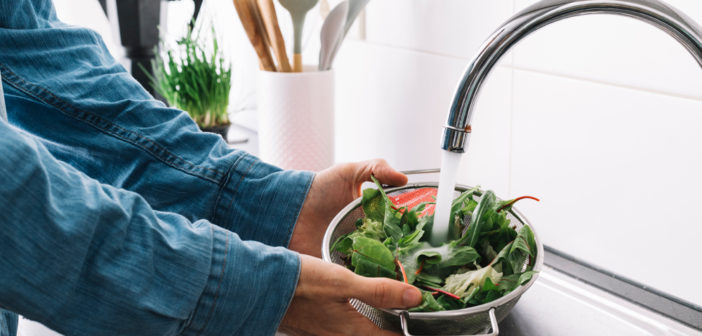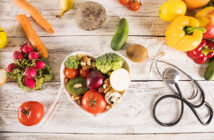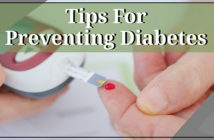It’s important to always practice healthy eating, but you have to be careful. Eating unwashed vegetables carries dangers that you need to be aware of.
According to research, unwashed leafy greens accounted for 46% of food illnesses. This is more than sickness caused by meats, poultry, and seafood. Vegetables are an essential component for any healthy eating plan, the only problem is you need to wash them first or else you can get very sick.
Unwashed vegetables can contain some unseen pathogens (bacterial organisms), and while we know eating them is good for our health, eating them unwashed is far from healthy.
The latest E-coli outbreak was linked to romaine lettuce from California, it caused 59 people to be sick, 23 hospitalized, and 2 people with kidney failure. Thankfully nobody died, but this is not to say that it cannot happen.
So how do you protect yourself from getting sick from the very vegetables that are supposed to make us healthy? Keep on reading to learn more about how to stay safe with healthy eating.
What Makes Unwashed Vegetables so Dangerous?
Most fruit and vegetables are on a long journey before they get to you, this means that they are exposed to harmful contaminants in multiple countries before they get to your plate. Unwashed vegetables can contain the following harmful contaminants.
E-Coli
Escherichia coli is a large group of bacteria found in the intestines of people and animals. It can cause diarrhea, respiratory illness and pneumonia, urinary tract infections, and other illnesses.
Listeria
Listeria monocytogenes (Listeria) can live in animal poop, soil, water, dust, and cold temperatures. The problem with Listeria is that cold temperatures cannot kill it, so freezing your food will not rid of it.
Salmonella
Salmonella, also known as Salmonellosis, which affects about 1.2 million people every single year. It is usually found in the stomach, intestines, and poop of animals. Symptoms include nausea, vomiting, dehydration, diarrhea, fever, blood in the stool, and the possibility of Typhoid fever.
Over 85% of food poisoning outbreaks in between 1973 and 2012 in the United States are from leafy green vegetables. Some of these foodborne illnesses are unavoidable, however, to avoid them as best as you can, wash them thoroughly.
The Dangers of Pesticides
To add to the bacteria, there is also the risk of consuming harmful pesticides with your fruits and vegetables. When you are eating non-organic produce, chances are that it was sprayed with a toxic solution to rid of any pests or bugs from eating it while it was growing.
Some pesticides such as DDT and lindane can remain in the soil for years, so there is no easy way to get rid of them. They can also remain in your body for a long time, eventually leading to diseases such as cancers, birth defects Alzheimer’s disease, Parkinson’s, ADHD, and more.
Why You Need to Eat Your Vegetables
Do not go thinking that you should just avoid consuming vegetables to avoid getting sick because that will actually have the opposite result. Vegetables are essential for human survival, they nourish your body with a wide range of phytonutrients, minerals, and vitamins. Without the nutrients of eating real vegetables, your cells will become malnourished, weaken your immune system and in some cases increase your risk of chronic illness.
Mother nature has provided us with these beautiful and colorful vitamins to consume. Depending on the vegetable, it nourishes a specific part of our body that will help to:
- Reduce your risk of chronic illnesses
- Lower blood pressure
- Reduce the risk of cancers
- Reduces inflammation
- Keep our digestive systems healthy
- High in Fibre for regularity
- Keep us lean and healthy
How to Wash Your Vegetables
Since most of the bacteria are in the soil that is on your fruit and vegetables, and the pesticides are on the surface. Even organic produce has the chance of pesticides, so a good wash will diminish the chances of getting sick or poisoned.
A recent study discovered that washing your produce in a solution with baking soda rid of the most common pesticides, toxins, and bacterias. It is essential to making a healthier change in your life.
All you have to do is put your leafy greens in a salad spinner or clean sink, then fill with water. Add a teaspoon of baking soda, and make sure it mixes in thoroughly, let it soak for a couple minutes then rinse and dry.
If you are cleaning other vegetables such as mushrooms or potatoes, you have to use a specific brush to really get the soil removed from its surface. For fruits, it is the same way as washing vegetables, just make sure you dry them well.
Keep in mind that you only want to wash fruits and vegetables before you eat them because water can cause spoilage and they will not last as long.
The Dirty Dozen and Clean Fifteen
Organic produce can get quite pricey, leading anyone to avoid it, but what you can do is learn which produce is ok to eat non-organic (the clean fifteen), and which produce is essential to purchase organic (the dirty dozen).
- Strawberries
- Spinach
- Apples
- Grapes
- Peaches
- Nectarines
- Celery
- Cherries
- Tomatoes
- Pears
- Potatoes
- Peppers
- Cabbage
- Onions
- Avacado
- Asparagus
- apaya
- Corn (can be GMO-pesticides inside)
- Kiwi
- Broccoli
- Cantaloupe
- Mangos
- Melon
- Cauliflower
- Peas
- Pineapples
- Eggplants
Learn More about Healthy Eating
Healthy eating is only possible with vegetables, therefore, washing them properly enables you to eat clean, nourish your body, detox, and thrive in life.
If you feel that you have been consuming pesticides, it is not too late to make a change. Our 7-day whole body detox program is the exact answer you are looking for, it includes personal health coaching, meal plans, recipes, fitness tracker, and a community of other people who are on the same journey as you.
We are in this together, and it is time to start living the healthier life you deserve!




